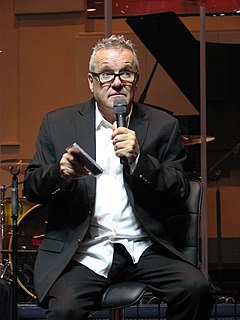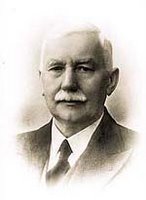A Quote by Don Paterson
There's no fury more righteous than that of a sinner accused of the wrong sin.
Related Quotes
We often think more highly of ourselves than we ought to, and it's easy to judge others and be critical of their weaknesses and shortcomings. But this self-righteous attitude is a sin that we can be blinded to because we're so focused on what the other person did wrong. The reality is this attitude is worse than the wrong behavior we're judging.
Sannyas is celebration of life, and sin is natural: natural in the sense that you are unconscious - what else can you do? In unconsciousness, sin is bound to happen. Sin simply means that you don't know what you are doing, you are unaware, so whatsoever you do goes wrong. But to recognize that "I am a sinner" is the beginning of a great pilgrimage. To recognize that "I am a sinner" is the beginning of real virtue. To see that "I am ignorant" is the first glimpse of wisdom.
The cliché, God hates the sin but love the sinner, is false on the face of it and should be abandoned. Fourteen times in the first fifty Psalms alone, we are told that God hates the sinner, His wrath is on the liar, and so forth. In the Bible, the wrath of God rests both on the sin (Romans 1:18ff) and on the sinner (John 3:36).
Only few know what righteousness is. It is righteous to suffer for your own foolishness. When you sin, it is righteous to bear the consequences of your sin without complaining. Saying what you mean and what is on your heart when you deal with other people, that is righteous. One who hungers and thirsts for righteousness will be filled-and being filled with righteousness is something very great.
What are you to do? You are always to remember that you are the child of a Great Father. You must not think that you are a sinner, that you are a degraded person. If you think that you are a sinner, it means you are meditating on sin! When sin has become the object of your meditation, you will become a sinner, because a person becomes just like the object of his or her ideation. We become the object of our meditation.
We are all trophies of God's grace, some more dramatically than others; Jesus came for the sick and not the well, for the sinner and not the righteous. He came to redeem and transform, to make all things new. May you go forth more committed than ever to nourish the souls who you touch, those tender lives who have sustained the enormous assaults of the universe. (pp.88)







































